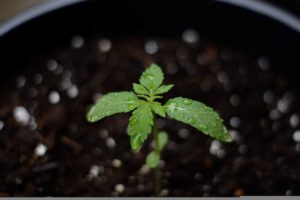Cannabis, also known as marijuana, is a plant that has been used for centuries for its medicinal and recreational properties. However, its use has been heavily restricted and criminalized in many countries, leading to a complex and controversial debate around the legalization and decriminalization of cannabis.
The legalization of cannabis refers to the process of making it legal to use, possess, and sell cannabis for adult use. This means that individuals would be able to buy and consume cannabis without fear of legal repercussions. On the other hand, decriminalization refers to the process of reducing or eliminating criminal penalties for possession and use of small amounts of cannabis. This approach aims to reduce the number of people who are incarcerated for cannabis offenses, and instead, focus on education and treatment.
One of the main arguments for the legalization of cannabis is that it would generate significant tax revenue for governments. According to a study by the Tax Foundation, legalizing cannabis in the United States could generate up to $28 billion in annual tax revenue. This revenue could be used to fund public services such as education and healthcare. Additionally, legalization would also reduce the cost of enforcing cannabis-related laws and lower the number of people incarcerated for cannabis offenses.
Another argument for legalization is that it would allow for better regulation and control of the cannabis market. This would ensure that cannabis products are safe and of high quality, and that they are not being sold to minors. Additionally, legalization would provide an opportunity for small businesses and entrepreneurs to enter the cannabis market and create jobs.
On the other hand, there are also arguments against legalization. Some people argue that legalization would increase the number of people using cannabis, particularly young people, leading to potential negative consequences on public health and safety. Others argue that legalization would lead to an increase in crime and social disorder.
Decriminalization, on the other hand, is seen as a more moderate approach to cannabis policy. It does not legalize the drug, but it does reduce the penalties for possession and use of small amounts of cannabis. This approach aims to reduce the number of people who are incarcerated for cannabis offenses, and instead, focus on education and treatment.
Decriminalization has been implemented in several countries and states, and the results have been positive. For example, in Portugal, where possession of all drugs was decriminalized in 2001, drug-related crime and HIV/AIDS infections have decreased, and more people have access to treatment and support services. Similarly, in states in the US that have decriminalized cannabis possession, such as California, there has been a reduction in arrests and incarceration rates.
In conclusion, the legalization and decriminalization of cannabis is a complex and controversial issue with valid arguments on both sides. While legalization would generate significant tax revenue and better control the cannabis market, it could also have potential negative consequences on public health and safety. Decriminalization, on the other hand, would reduce the number of people who are incarcerated for cannabis offenses and focus on education and treatment. Ultimately, the decision on how to approach cannabis policy should be based on thorough research, analysis, and public engagement.





